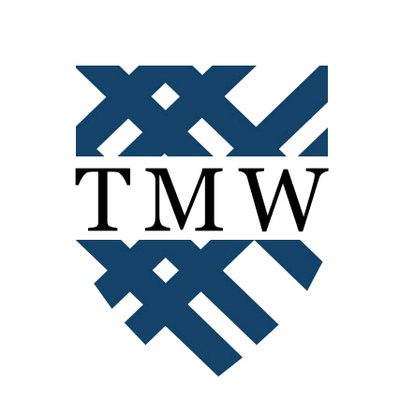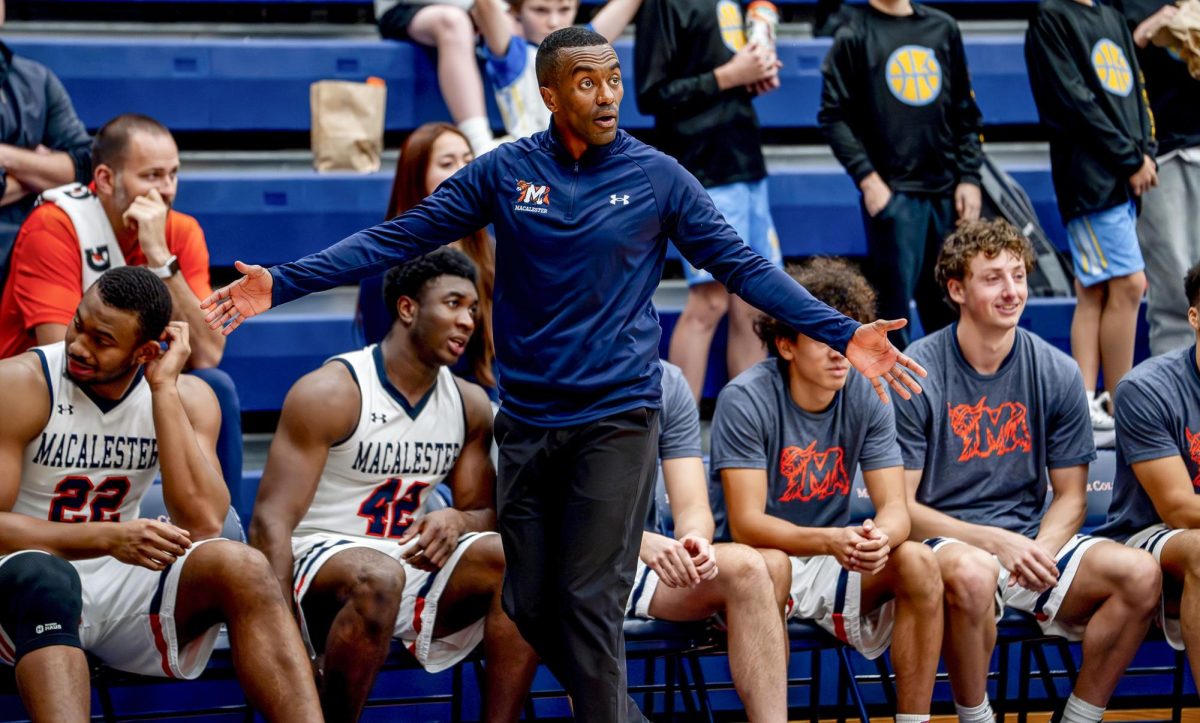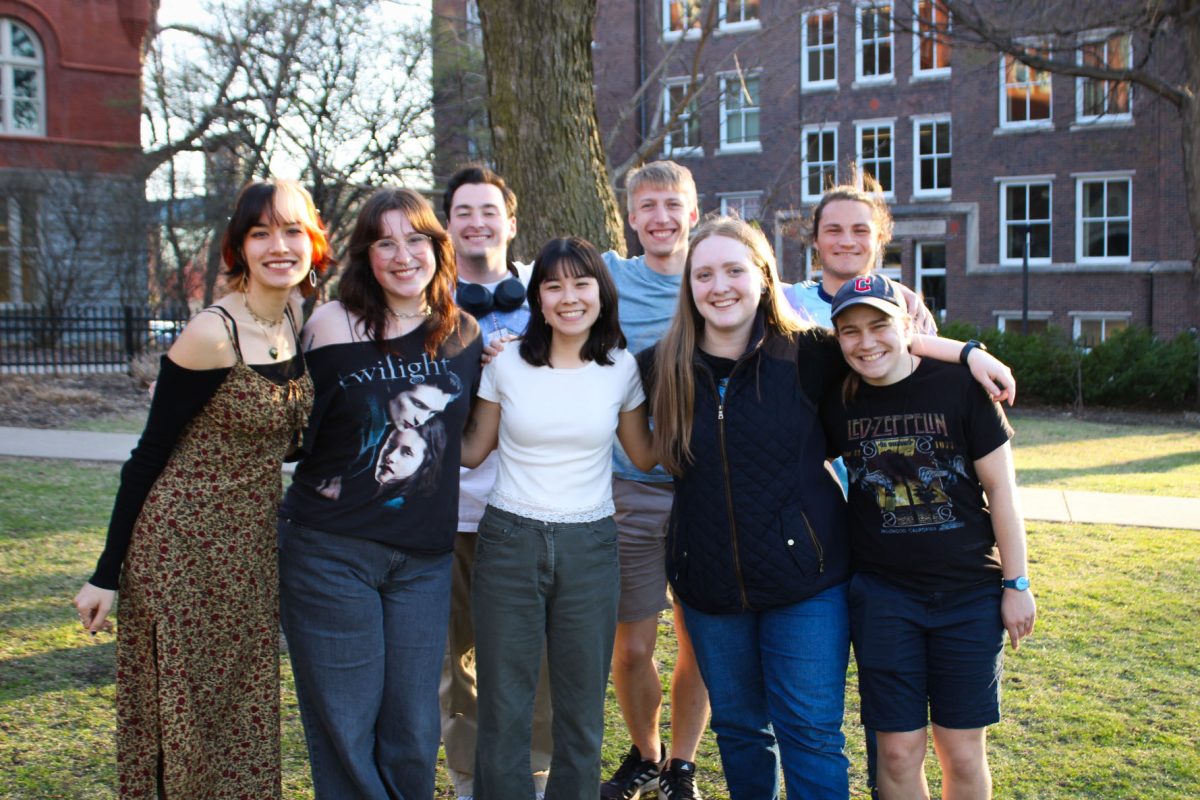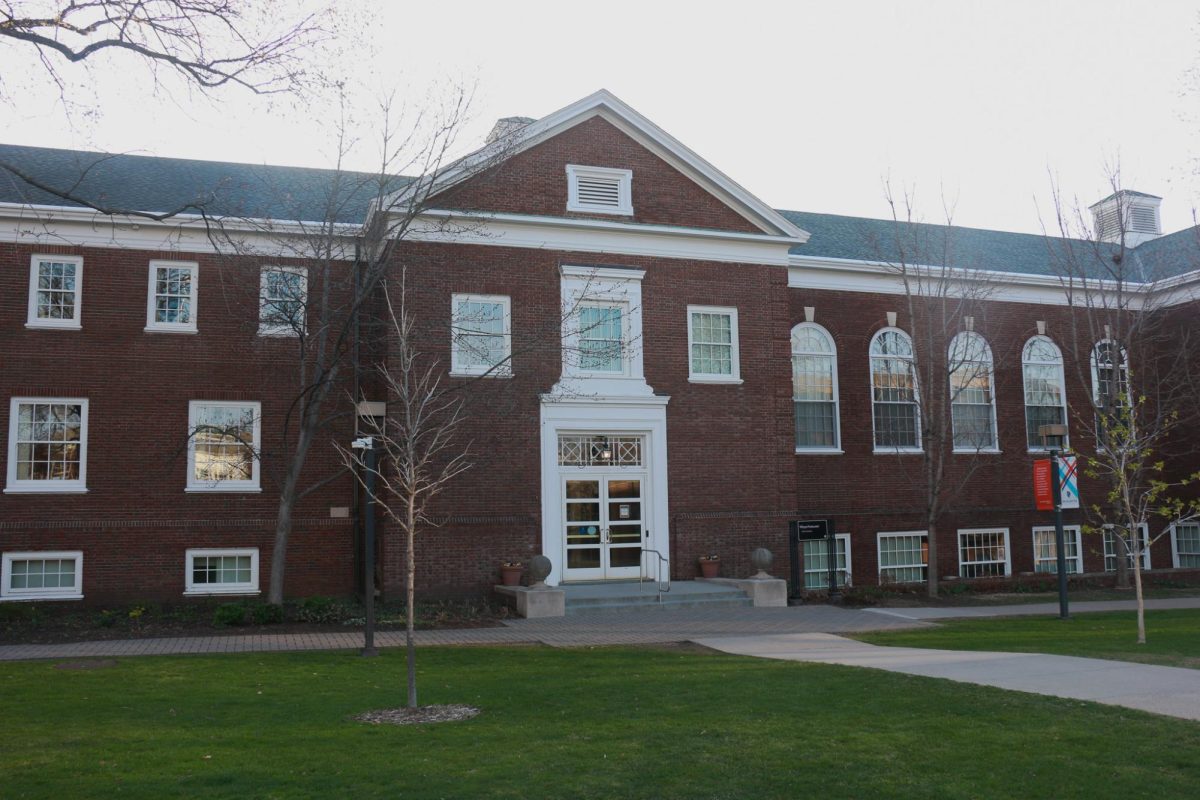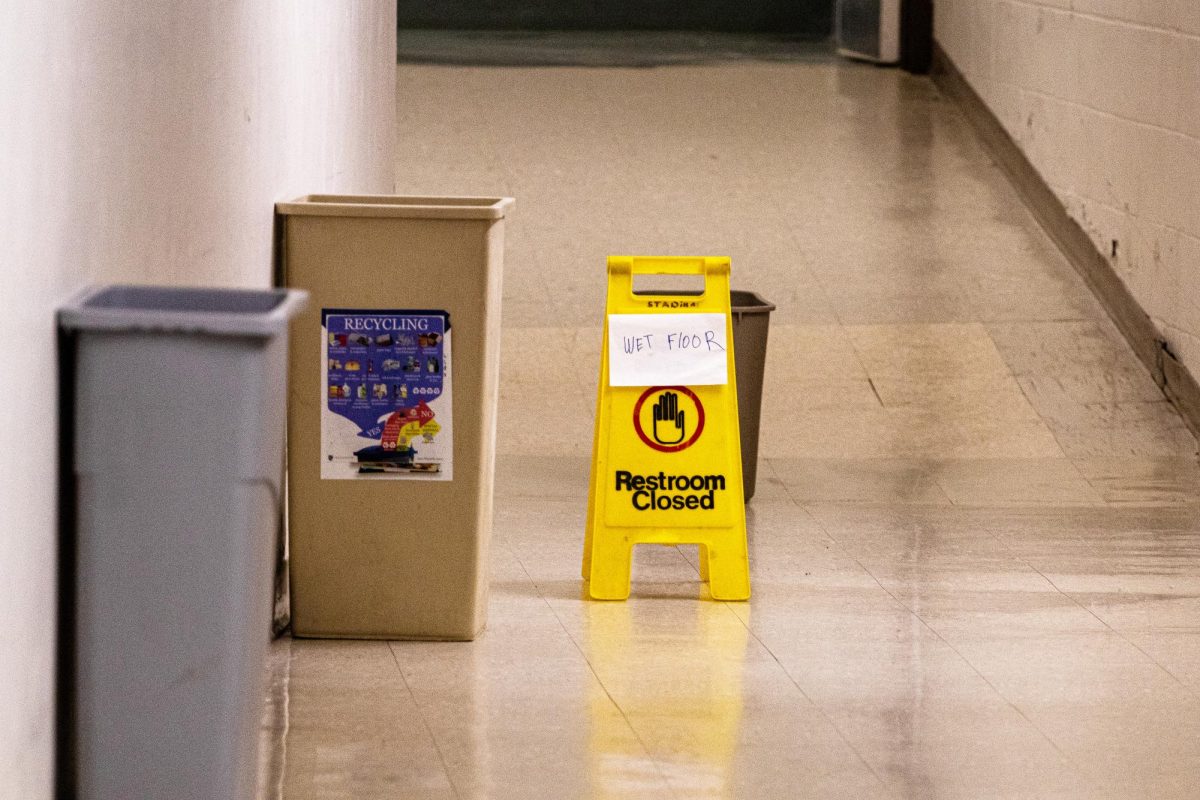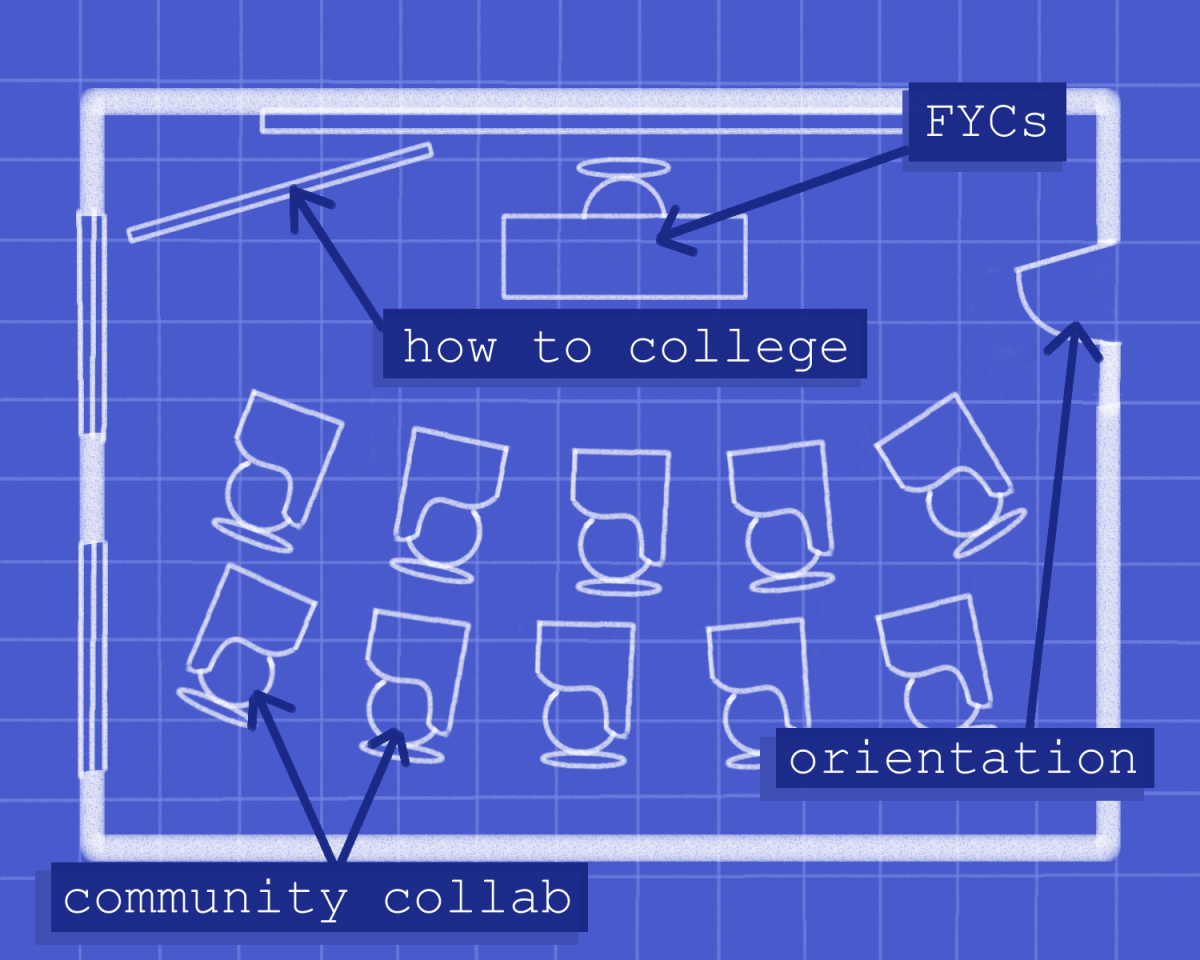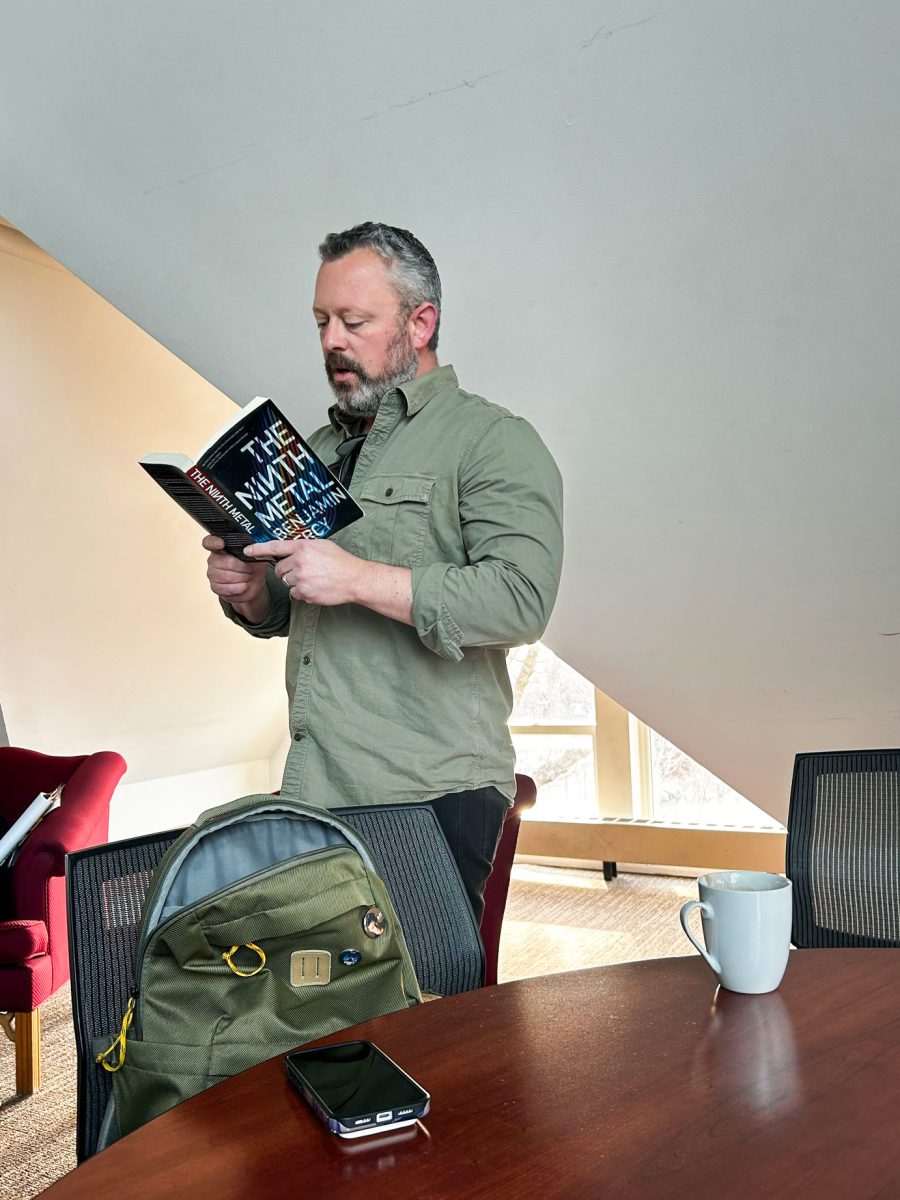‘Why are things the way they are?’ This discussion surrounding campus affairs, finances and everything else that happens inside the red bricks of Weyerhaeuser Hall persists at Macalester. Since COVID-19, student involvement in campus affairs has struggled to regain traction, and much has been lost to the constant turnover of the student body. Recent organizing around various campus and community affairs has revealed a lack of understanding of the college’s operations, and has called for more transparency on the inner workings of the college, especially surrounding money at Mac.
In his time on campus, Andrew Lee ’23 was involved with Fossil Free Mac, which organized for Macalester’s divestment from fossil fuel companies, and Stop Line 3, which protested Macalester’s involvement in Enbridge, an oil company building an oil pipe on indigenous land in Northern Minnesota. The work he was a part of is guiding movements at Mac today; however, there is still a gap in understanding from Lee’s time to now.
“It is frustrating [how quickly student knowledge dies out],” Lee said. “Some of it’s intentional. Colleges benefit from the fact that students are only there for four years. You spend the first year not really knowing what’s going on, and learning about it from the upperclassmen, who you get to be around, if you have those social relationships. If you don’t, you’re kind of just in your bubble. If you’re a student organizer, then you spend the next two years trying to change things and fix the system. And then suddenly, it’s your last year and your focus has to move outward.”
A more informed student body, across all class years, allows for more intentional conversations around the subject of the college’s investments.
Vice President of Administration and Finance Patricia Langer oversees much of the economic activity at Macalester, including Business Services, Facilities Services, the High Winds Fund, Human Resources and the Investment Office. She is responsible for both front-facing and behind-the-scenes work with the college’s finances, working closely with students, alumni, faculty and staff to keep Macalester running smoothly.
“I think it is important for Mac students to understand both the revenue and expenditure [what the college makes and spends, respectively] of Macalester’s operating budget,” Langer wrote in an email to The Mac Weekly. “Macalester’s operating budget revenue distribution for the current year is as follows: 60% Comprehensive Fee, 31% Endowment Distribution, 7% Gifts and Grants and 2% Other. Macalester’s operating budget expenditure distribution [is] 65% Faculty, Staff and Student Compensation, 26% Program Budgets, 5% Debt Service and 4% Capital Expenditures.”
Joanna Curtis ’97, vice president of advancement, focuses on the operating budget through philanthropy, ensuring the college has what it needs to run throughout the year.
“Our main sources of income are tuition and fees, income from the endowment and current philanthropy,” Curtis said. “Tuition and fees pay about 65% of our operational expenses. [When] we reach the point where we’re 65% of the way through the academic year… philanthropy takes it from [then] on out, and that philanthropy includes income from the endowment and then current philanthropy that’s not part of the endowment. So that makes up about 35% of the total operating budget for the college.”
On Wednesday, April 17, Langer addressed the student body in an email, announcing the updated figures for the 2024-25 academic year. Full-time students will be billed $67,874 for tuition, bringing the total price tag to $83,864, including room, board and other fees, up from $79,890.
“We have worked to set a comprehensive fee for next year that supports fulfilling our financial aid, compensation, programming, and other college commitments,” Langer wrote in the email.
To combat inflation and keep the college operational, tuition increased by around $2,000 every year for the past five years; however, this year’s increase is closer to $3,000. These changes are often frustrating for students, who see the big numbers but not the reasoning behind them. Lee helped to put together a comprehensive report on power and money at Mac with classmate Benjamin Levy ’23 to create a digestible account of the way money works at the college.
“A lot of that research had to do with understanding how money functions,” Lee said. “What is our endowment? How do investments work? How much money as students do we have access to? Where are the moments [in which] we can take power? What are the things that are inaccessible?”
Mostly concerning the endowment, Lee and Levy hoped to fill the gap between what was publicly available for students and what the student body actually knew about money at Macalester.
“The endowment comes from an original amount of money that gets invested when the school begins [and] it accrues interest over time,” Lee said. “[It] consists of an initial cash investment, bonds, stocks, real estate assets, private equity and investment in hedge funds.”
As of March 31, 2023, the most recently available sum, the market value of the endowment was $841 million.
A large part of the endowment lies in the physical landscape that makes up the Macalester-Groveland area. These real estate assets, commercial properties owned by Macalester, are managed by Langer under the High Winds Fund.
“Macalester owns property off-campus for a variety of reasons,” Langer wrote. “To curate a vibrant, strong and diverse mixture of retail and restaurant tenants that support the experience of our students, faculty, staff and neighbors, to strategically invest in properties that hold potential for campus expansion and to provide better access to rental housing for incoming faculty and staff who want affordable living close to campus.”
91% of the endowment, including the High Winds Fund, is highly restricted. Only the revenue accrued from the initial investment is available to the college, and there are limitations to how that money can be spent.
“I think one common misperception about endowment is that the funding is flexible for the college to use; however, most of the endowment is very restricted,” Curtis said. “We are legally, morally [and] ethically obligated to use that money in the way that the donor decided in perpetuity.”
Some money is unrestricted however, such as the funds being used to remodel the Campus Center this summer. The 2023 independent auditors’ report states that Macalester held $1.1 billion in assets, made up of $814 million in long-term investments and $190 million in land, buildings and equipment.
While those numbers may seem large, Lee and Curtis both note that scale is important to consider.
“You hear $891 million [Macalester’s combined short-term and long-term investments in 2022], and you’re like, holy fuck, I’m never going to see that amount of money in my life,” Lee said. “But the top five largest endowments in the U.S. as of last year [are] Harvard at $53 billion, then it’s Yale at 42, the University of Texas System at 40, Stanford at 38 and Princeton at 37. And so [if you’re talking to someone in admin or to one of our CFOs, you might sometimes hear]… them being like, ‘we actually don’t have that much.’ Those are kind of the numbers that they’re thinking of, which can be a complicated thing to grapple with.”
For Curtis, the size of the endowment has far more to do with the community it represents than the sheer number it boasts.
“Our endowment is, compared to the average college or university endowment, a very healthy endowment, but a lot of our peer institutions in the region have larger endowments,” Curtis said. “I don’t want us to have a larger endowment for the sake of having a larger endowment, I want it because I want Macalester to have that same security that those other institutions have that allow us to ensure that we’re able to provide more financial aid, that we’re able to do more programming, that we are able to attract and retain top faculty that helped us maintain our reputation for undergraduate teaching.”
Mac students, however, are more likely to see the impact of money on campus as it connects to student organizations and the budgets that they all have to work with, which are allocated by Macalester Student Government’s (MCSG) Financial Affairs Committee (FAC). The money that FAC has to work with every year comes from the student activities fee that all students attending classes on campus in a semester have to pay. Those on study abroad are not charged the fee. The fee itself is $130 in the fall and $100 in the spring.
According to FAC Chair Eliora Hansonbrook ’25, the pot of money that informs the committee’s calculations regarding how much money they have to distribute going into Budget Bonanza, the event in which orgs receive funding, comes from a combination of that student activity fee as well as from anticipated rollover of any funds that didn’t get spent in the previous school year.
“When we actually get to Budget Bonanza, … we have to assume that everything that’s been requested is going to be spent,” Hansonbrook said. “When we are doing the calculation on how much we expect to have, and how much we can spend reusing that, we always anticipate some rollover, which is why we have no money leftover for additional allocations.”
With all of this money built up, FAC first needs to put aside some money for off-the-top funds to cover additional allocations in the coming school year and the community chest fund. The community chest fund contains a portion of the student activity fee open to all Mac students to throw events on campus that can be independent of orgs. Off-the-top expenses include some of the larger student-based budgets on campus, including the New York Times subscription as well as operational expenses for WMCN and The Mac Weekly. These off-the-top expenses totaled to about $162,000 this year.
Once this money is set aside, FAC moves on to considering student orgs’ requests for money during Budget Bonanza. For the 2024-2025 school year, student orgs requested a total of $277,000 for use in the coming school year. Of that total, $252,079 was in the operating category of FAC’s grouping of operating and capital.
If this number seems big, that’s because it is. Compared to previous years, this is a massive increase, particularly in the operating category. Looking quickly at the numbers, the last 4 years have seen consistent growth of funding requests, with $117,508 for the academic year 2021-2022, $181,435 for 2022- 2023, $213,151 for 2023-2024 and culminating in this year’s request of $252,079 for next school year. Hansonbrook attributed part of this growth to COVID-19 and the existence of a surplus caused by the pandemic.
“We did have a lot of money that rolled over from the COVID years, but that’s more or less gone, that surplus has disappeared, especially with the inflationary environment,” Hansonbrook said.
FAC found itself unable to approve all of the requests put forward by orgs for the coming school year, implementing a series of cuts across the board following a factorial-based system of penalties. Orgs that completed some element of the Budget Bonanza process incorrectly, which required steps such as attending a presentation, meeting with an FAC liaison and finally submitting the budget itself, were the first to find themselves on the chopping block. A series of cuts were made, focusing both on individual line items being penalized as well as overall budget impacts.
“For the orgs that messed up their requests, […] we cut them first, Hansonbrook outlined. “We have a schedule of cuts that we made them go through. And we decided on that as a committee, in addition to the percentage of cuts for each thing that we’re interested in, we also penalize them a further n-factorial minus 1%.”
Beyond these actions taken against orgs that completed elements incorrectly, all student orgs found themselves on the receiving end of a 48% cut across the board from FAC as they tried to balance all the numbers with the anticipated budget for student orgs in the coming year. FAC’s budgeting process, however, does not connect to Macalester’s overall budgeting methods, which are moving towards a zero-based budgeting system as a part of the strategic plan.
“With a zero-based budget process, what everyone across campus, faculty [and] staff, were asked to do is look at the minimum it would take to run your operation, and then we’re going to start building it back up from there,” Curtis said.
Hansonbrook holds a position on the Board of Trustees Finance Committee, which gives her knowledge of how the school’s budget comes together.
“It’s going to hopefully free up some of our revenue, and help streamline the overall budgeting process, which will allow us to have a little bit more money that can be allocated to new programs, or which can get moved around in order to strengthen up and shore up existing lines of spending,” Hansonbrook said.
It is important for students, more than just those on MCSG, to understand college operations.
“The institution benefits from students not knowing how the money works,” Lee said. “Because then they can just sort of go, ‘well, they don’t know what they’re talking about.’ And it allows them to discount concerns that are coming from a really justified place.”
With this knowledge, students are granted a voice in important conversations concerning their and future students’ college experience. The budgeting process, tuition increase, endowment figures and audits are all publicly available for students online and through staff and faculty.
Zak Yudhishthu contributed to the reporting of this article.

